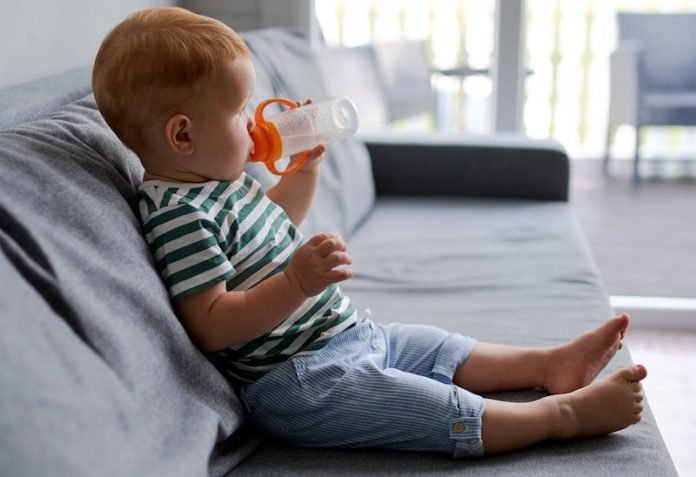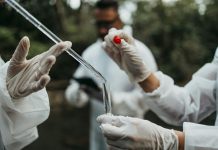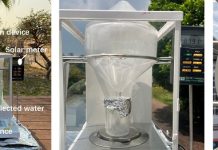
Scientists from Silent Spring Institute found many children’s products, including those with green certifications, contain harmful PFAS chemicals that were not listed on the label.
The findings demonstrate the pervasiveness of PFAS in products and the challenges for consumers trying to avoid toxic chemicals in their everyday lives.
The research is published in Environmental Science & Technology and was conducted by Dr. Laurel Schaider et al.
Studies have linked PFAS with a range of health effects including cancers, thyroid disease, high cholesterol, low birth weight, and asthma.
There is also evidence that PFAS can suppress the immune system, potentially weakening the effectiveness of childhood vaccines and the body’s ability to fight infections.
In the study, the team examined 93 different products often used by children and adolescents, including bedding, furnishings, and clothing.
The researchers specifically chose products that were labeled as stain-resistant, water-resistant, “green” or “non-toxic.”
They first used a rapid screening method to test the products for fluorine—a marker of PFAS. Fifty-four of the products contained detectable levels of fluorine. The highest concentration was found in a school uniform shirt.
Products advertised as water- or stain-resistant, even those labeled as “green” or “non-toxic,” were more likely to contain fluorine and also have higher concentrations of fluorine compared with other products.
The researchers then tested a subset of products for 36 different PFAS chemicals.
PFAS were found only in products labeled as water- or stain-resistant, regardless of whether they were marketed as “green” or “non-toxic.”
They also found PFAS most frequently in upholstered furniture, clothing, and pillow protectors.
Pillow protectors and clothing, in general, had higher levels of PFAS than other products.
PFOA, a legacy PFAS that has been phased out in the U.S., was detected in a variety of products, including those labeled as “green.” Most of those products came from China.
The team says these are products that children come into close contact with every day and over a long period of time.
Given the toxicity of PFAS and the fact that the chemicals don’t serve a critical function, they should not be allowed in products.
PFAS are a class of more than 9000 chemicals that companies add to a wide variety of consumer products to make them non-stick, waterproof, and stain-resistant.
In addition to items such as carpets, upholstery, and apparel, PFAS are also used in everyday items such as non-stick cookware, food packaging, cosmetics, and even dental floss.
If you care about chemicals, please read studies about food chemicals that may harm your blood pressure, and these house chemicals may increase your blood pressure.
For more information about health, please see recent studies about drugs that could inhibit the COVID-19 virus, and results showing hundreds of chemicals in consumer products could increase breast cancer risk.
Copyright © 2022 Knowridge Science Report. All rights reserved.



